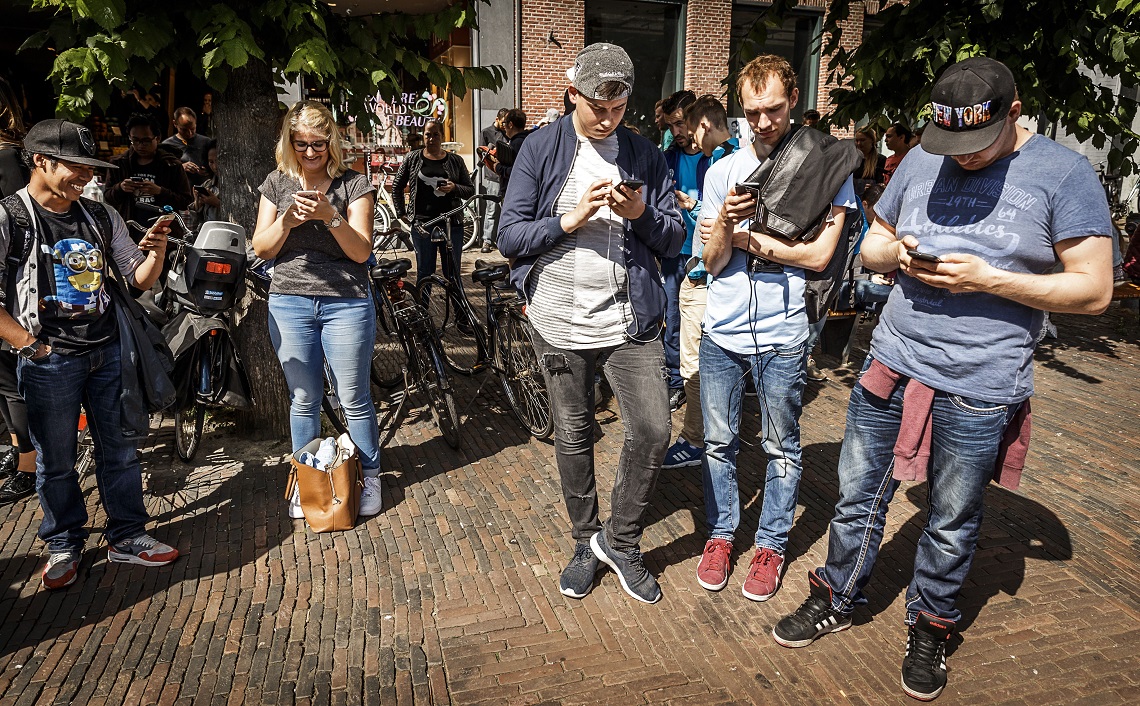Pokemon Go As a Business Strategy? What Vancouver Businesses Need To Know

You may remember Pokemon as the trading card game that took over your school’s recess for a few years, or the GameBoy game that everyone was obsessed with for a few weeks. This time Pokemon’s back, and it has taken over the internet, but that’s not what’s interesting about it.
Over the past few weeks, I had heard that there was going to be a new Pokemon game released, and I couldn’t have been less interested. Then it became the #1 most downloaded game on the Android store before even being fully released. Then I was seeing Tweets from people who I respect talking about how crazy the technology is. So, for research purposes only, I side-loaded the game from its source (it hasn’t been released in Canada yet) onto my phone and tentatively opened the app.
Short story: It’s bananas, and it has very little to do with the game.
this is a strange era in human history pic.twitter.com/ayuFgyygw1
— no (@tbhjuststop) July 11, 2016
Pokemon Go uses Google Maps data and drops a skin overtop of it to create an interactive world within your phone. The point of the game is to walk around your city, finding monsters to catch and rewards to collect to eventually do battle with the other people in the game.
Think about how huge that is: The games that we’re playing now get us up out of our chairs, create a fantasy version of the real world, and then cause people to interact with each other.
The technology is called Augmented Reality, and the opportunities that it creates are massive. I’ve broken down 3 for you in this week’s Social Brief to get you up to speed:
1. Virtual Real Estate Value Can = Real Value
There are already a ton of businesses in the States seeing a real impact from the Augmented Reality aspect of the game: There are valuable landmarks in the game like Gyms where players need to physically visit to get the benefits. Coffee shops/retailers/restaurants that happen to be located at or near those landmarks are inadvertently getting a flood of gamers. A few smart ones are taking advantage already.
When we have a flood of similar games, there will be a whole category of marketing dedicated to nurturing the relationship between the Virtual real estate and the IRL.
Sounds like sci-fi right? It’s the world(s) that we live in now.
2. Mobile, Mobile, Mobile
Augmented Reality games and experiences aren’t just mobile-first, they’re mobile-only.
I hope that it goes without saying that Mobile is more important than desktop for just about every online experience, but this technology is going to hammer that point home for everyone. Whereas Google Maps, Instagram, and Snapchat may be helping to move a lot of people around, that’s tough to prove. AR apps are everything that we had hoped that Foursquare would be: People voluntarily pushing their information and behaviour habits into a trackable, searchable environment.
Consider the weight of that for a moment: Masses of people voluntarily pushing their info into one place is exactly what made Facebook one of the biggest companies in the world. This data may be even more valuable.
3. Augmented Reality Is Coming In Hot
Whenever there’s a crazy rush of attention to one thing in the way that we’re seeing right now, there’s a shadow rush of startup/brand/tech activity. That rush won’t come in the form of people rushing out to create new startups, it will come from all of the 90% complete projects/companies/brand initiatives that will get a massive infusion of cash and attention this week to take advantage of all of the activity. And then, of course, we’ll have an AR bubble when the mainstream market catches up, but that’s another rant for another time.
Want To Know More?
- Pokemon Go 101, as explained by the good people at Vox.
- Some clickbait that’s getting a ton or attention about the dangers of Pokemon Go (kids got robbed, one found a dead body) – from Recode
- What you should know before side-loading like I did – by Quartz
- Westboro Church gets trolled by Pokemon Go player. Fires back – via Kotaku
- Pokemon Go is bigger than Tinder already – swiped by Business Insider
- And it’s about to pass Twitter – sorry about the ads from Forbes


